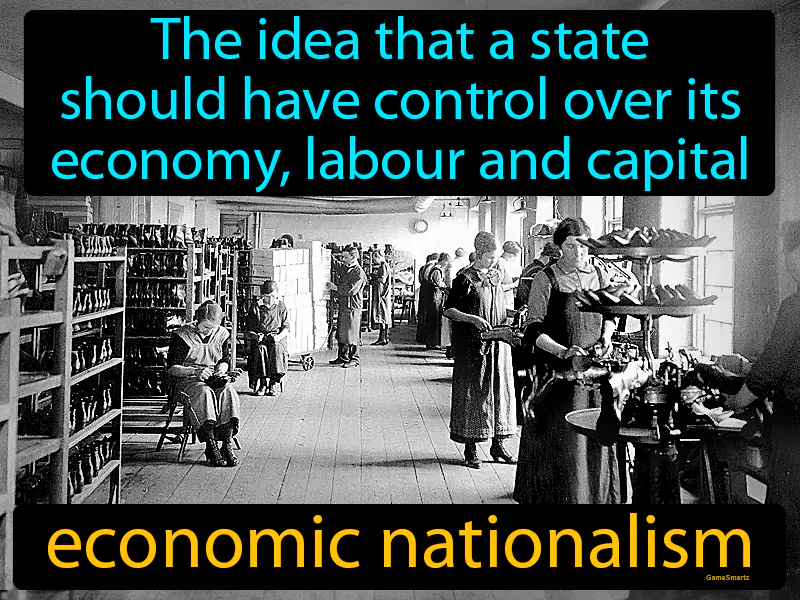Economic Nationalism
Economic Nationalism: Easy to understand
Economic nationalism during 1910-1939 was a response to global economic instability and the Great Depression, where countries prioritized controlling their own economies to protect jobs and industries. This approach often involved tariffs, trade restrictions, and prioritizing local businesses to safeguard national interests and reduce dependency on foreign powers. It was important because it aimed to stabilize economies and foster national unity during uncertain times. Today, economic nationalism still matters as countries sometimes focus on "buying local" to support their economies, especially during crises like pandemics or recessions. For example, during COVID-19, many people and governments promoted buying local products to support their own communities and reduce reliance on international supply chains.

Practice Version

Economic Nationalism: The idea that a state should have control over its economy, labour and capital. Economic nationalism. Historically, economic nationalism refers to policies that prioritize a nation's economy by controlling trade, tariffs, and industries to protect local jobs and industries.